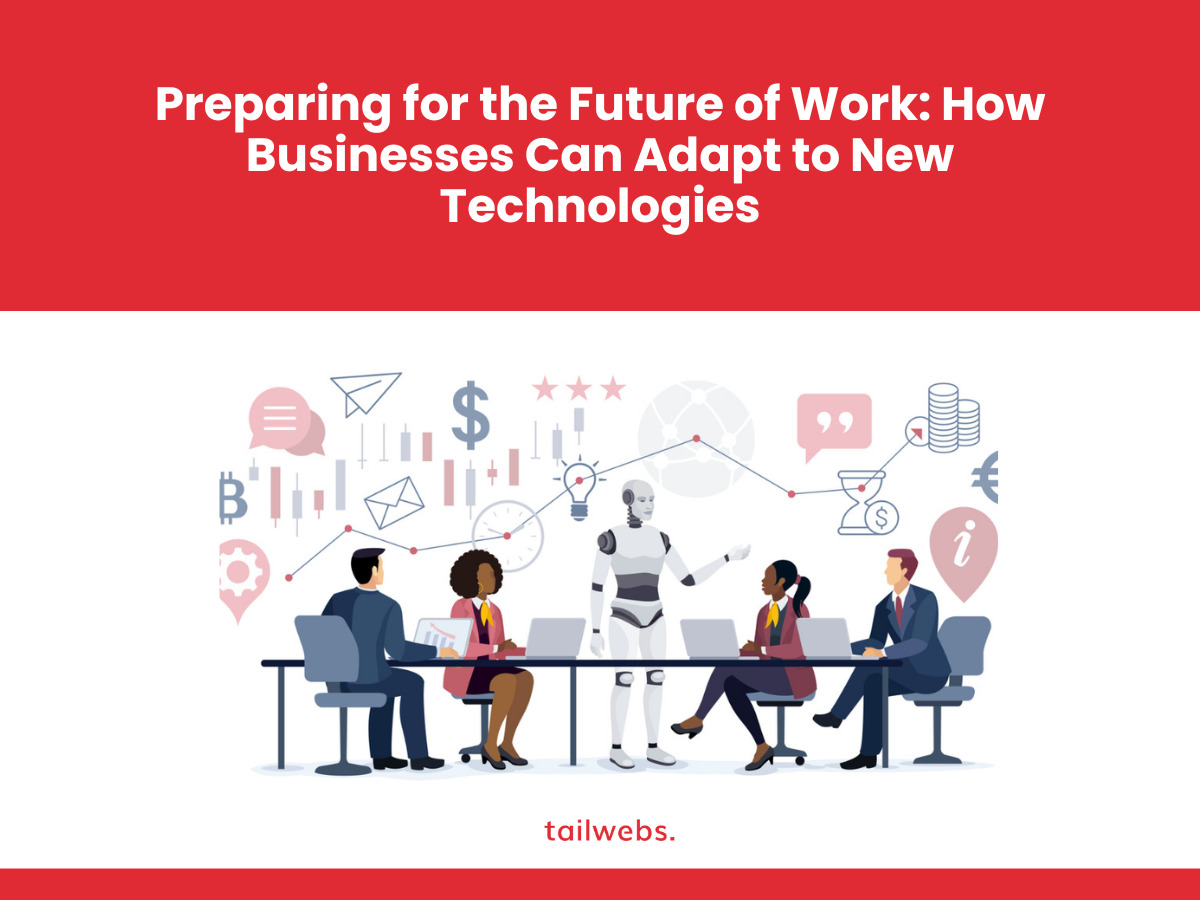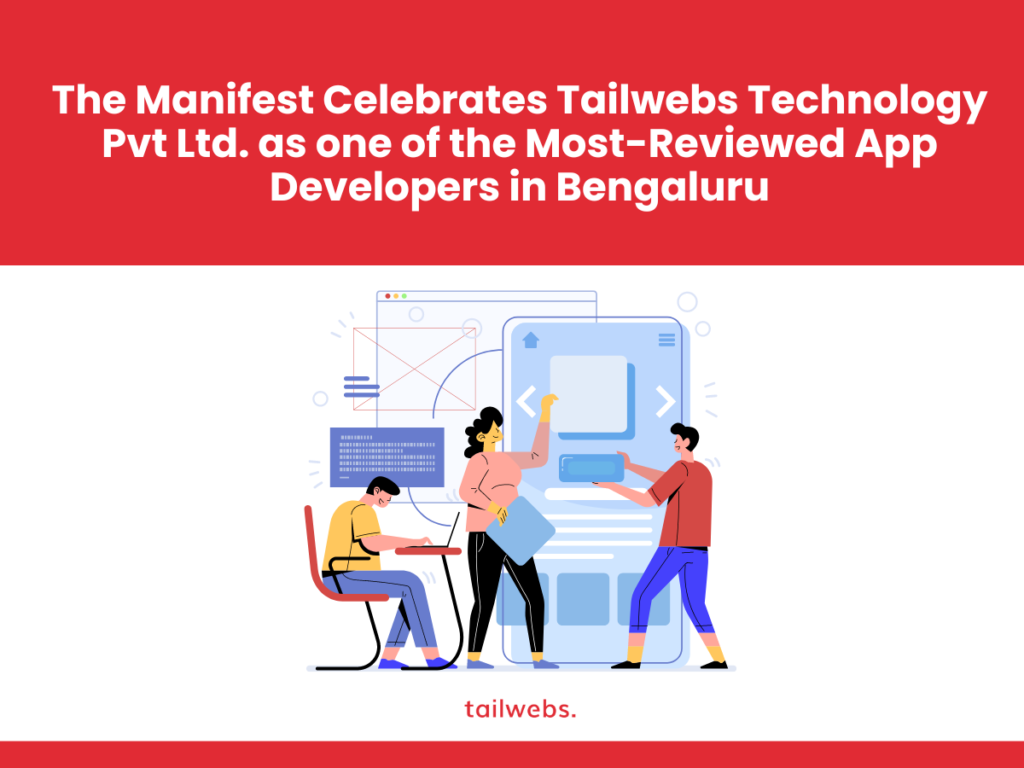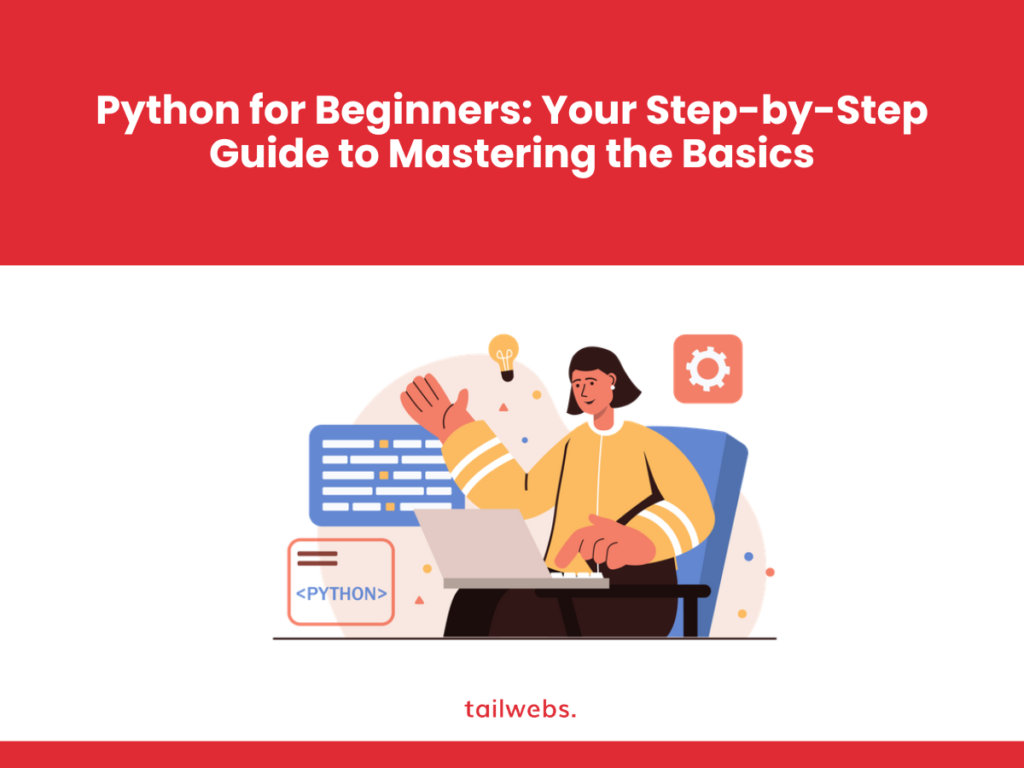Preparing for the Future of Work: A Symphony of Agility in the Face of Technological Disruption
The world of work is undergoing a metamorphosis, driven by a relentless wave of technological advancements. Automation, artificial intelligence, remote collaboration tools, and the ever-evolving digital landscape are fundamentally reshaping how we work, what skills are valued, and the very nature of jobs themselves. In this dynamic environment, businesses that adapt are the ones that will not only survive but thrive. So, how can businesses prepare for the future of work and ensure they’re playing the right notes in this ever-changing symphony?
Unveiling the Orchestral Score: Key Trends Shaping the Future of Work:
Automation and AI:
Repetitive tasks will increasingly be automated, while AI will augment human capabilities and drive innovation.
Rise of the Gig Economy:
Flexible work arrangements like freelancing and contract work will gain prominence, demanding adaptability and new employee engagement strategies.
Remote and Hybrid Work Models:
Remote and hybrid work will become the norm, necessitating investments in collaboration tools and remote work policies.
Lifelong Learning and Upskilling:
Continuously acquiring new skills will be crucial, as job requirements evolve rapidly.
Focus on Soft Skills:
Collaboration, critical thinking, creativity, and problem-solving will become even more sought-after skills.
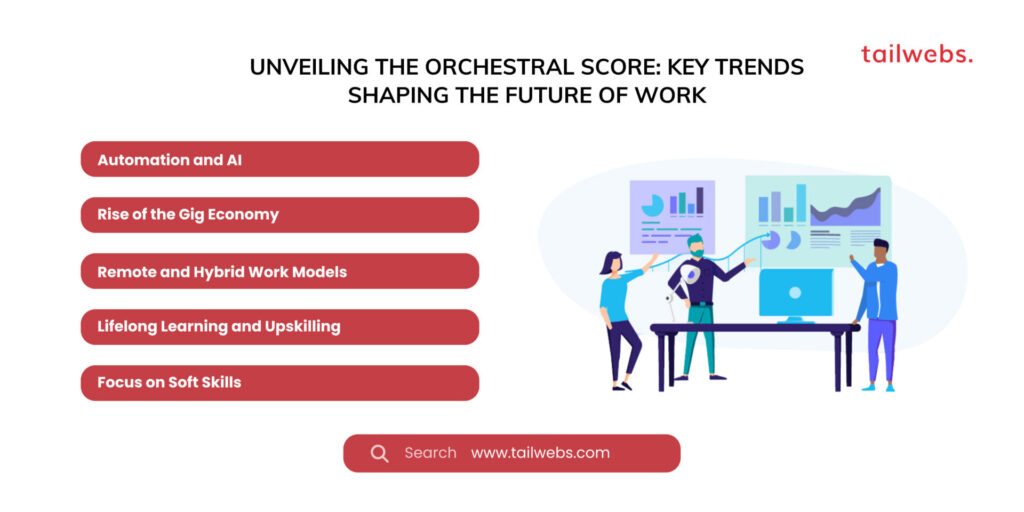
Stats Highlighting the Changing Score:
- By 2030, automation could displace up to 800 million jobs globally. (McKinsey Global Institute, 2017)
- The global freelance workforce is expected to reach 43.1 million by 2023. (Statista, 2023)
- 83% of employees globally prefer a hybrid or remote work model. (Microsoft, 2022 Work Trend Index)
- Only 44% of employees feel their companies are adequately preparing them for the future of work. (PwC, 2023 Global CEO Survey)
Composing a Harmonious Future: Strategies for Business Adaptation
Upskill and Reskill Workforces:
Invest in training programs, mentoring initiatives, and learning platforms to equip employees with relevant skills for the future.
Embrace Flexible Work Models:
Develop policies and infrastructure that support remote, hybrid, and flexible work arrangements to attract and retain talent.
Foster a Culture of Continuous Learning:
Encourage a growth mindset within the organization, where learning is viewed as an ongoing process, not a one-time event.
Implement AI Strategically:
Leverage AI to automate repetitive tasks, augment human capabilities, and drive innovation, but do so responsibly and ethically.
Prioritize Soft Skills:
Assess and develop soft skills across your workforce, focusing on collaboration, communication, critical thinking, and problem-solving.
Promote Diversity and Inclusion:
Create a diverse and inclusive workforce that reflects the changing demographics of the talent pool and fosters innovation.
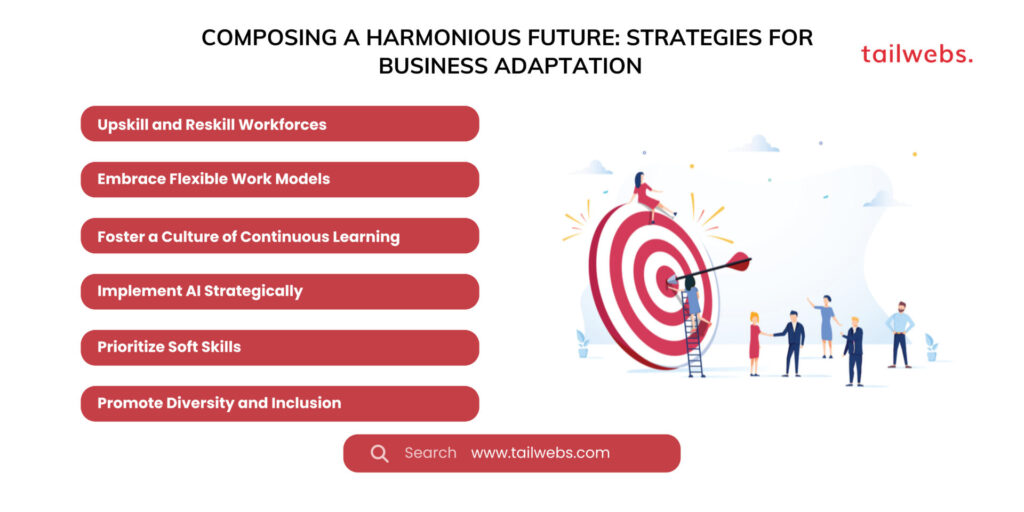
Recommended Resources and Tools:
- World Economic Forum Future of Jobs Report
- McKinsey Global Institute The Future of Work: Jobs, Skills, and Productivity
- Coursera Future of Work Specialization
- Harvard Business Review Leading in the Age of AI
- World Economic Forum Global AI Ethics Framework
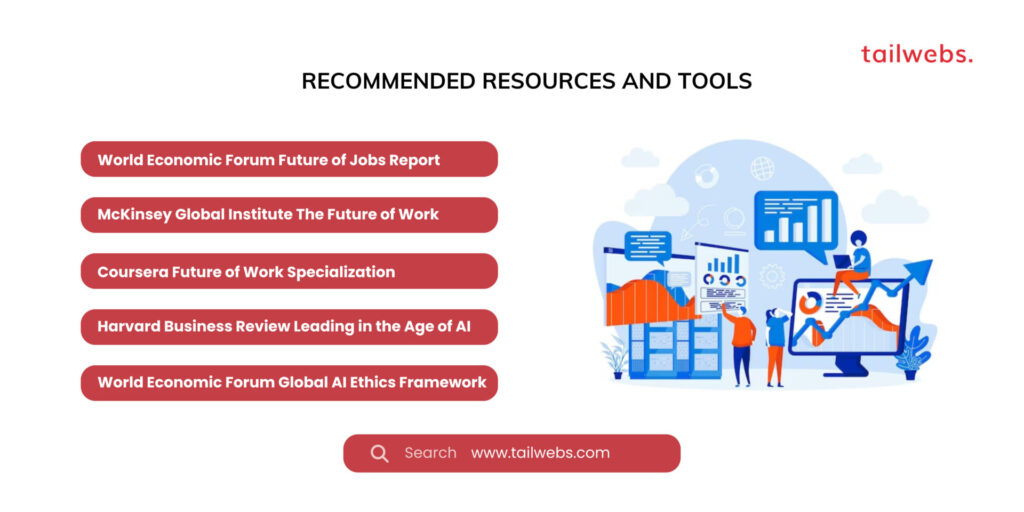
Building a Thriving Orchestra: Conclusion
The future of work will be a symphony of change, presenting both challenges and opportunities for businesses. By understanding the key trends, adopting strategic adaptation measures, and prioritizing human-centric development, businesses can ensure they not only survive but thrive in this dynamic landscape. Remember, the future of work is not a passive experience; it requires active participation and continuous adaptation. By playing the right notes today, businesses can ensure they have the right melody for success in the ever-evolving orchestra of the future.
Conclusion: Conducting the Future Symphony with Harmony and Purpose
The future of work is not just a matter of adapting to change, but actively shaping it with purpose and responsibility. While technology will undoubtedly be the driving force, it is ultimately human ingenuity, collaboration, and ethical considerations that will determine the harmony of this ever-evolving symphony.
Remember, the power to compose the future of work lies not solely with businesses, but with all of us – workers, educators, policymakers, and individuals. By fostering a collaborative spirit, upholding ethical principles, and prioritizing human well-being alongside technological advancements, we can ensure that the music of the future of work resonates with inclusivity, sustainability, and shared prosperity.
